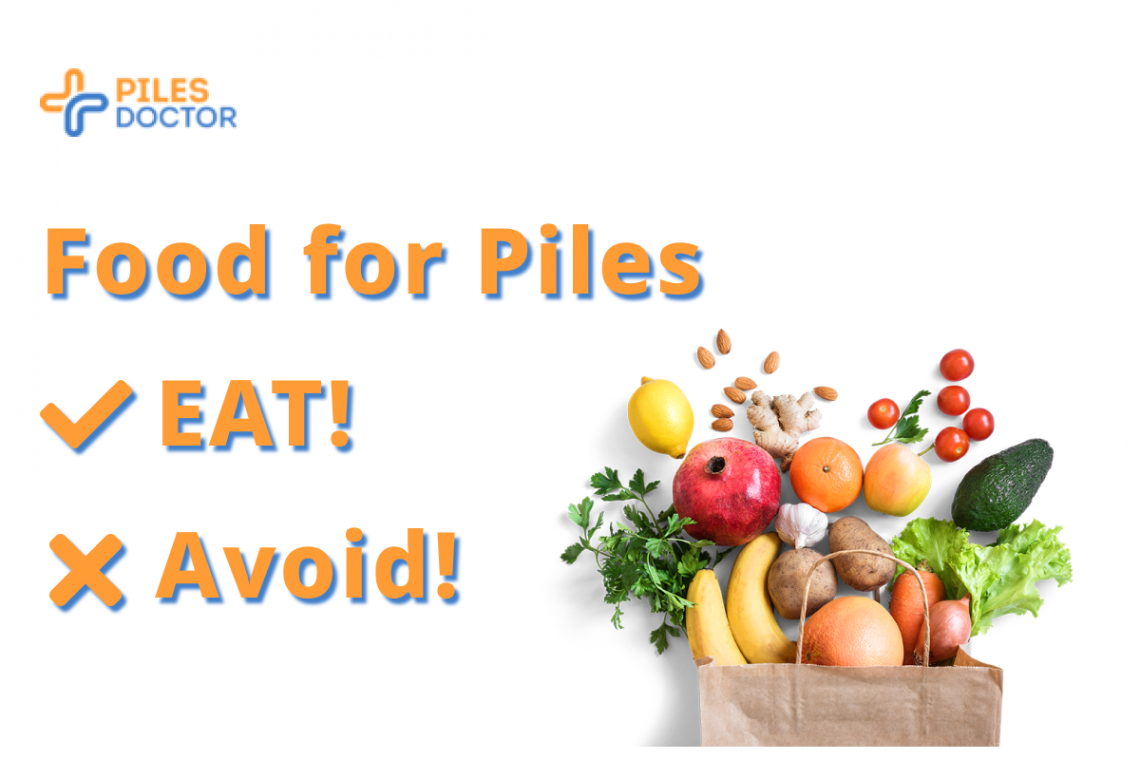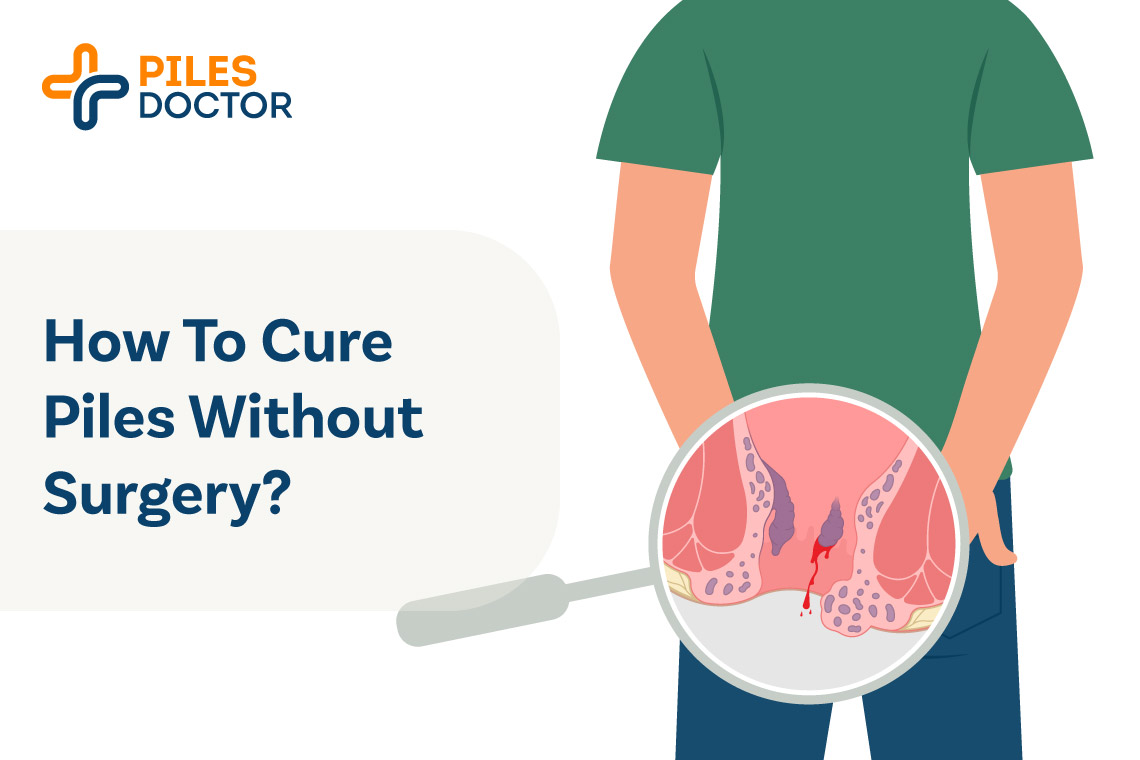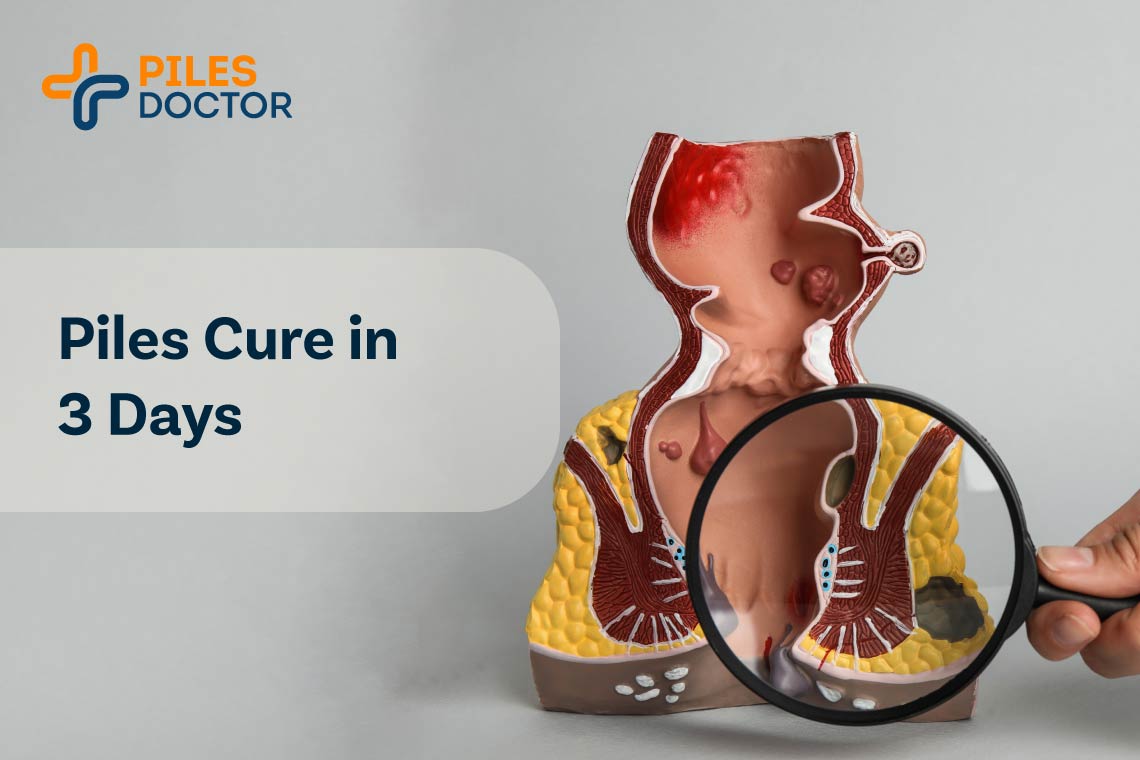Do you take your itchy red anal area too lightly? Do you also experience painful bowel movements and bloody stools very often? These may be alarming indicators of a highly troubling medical condition known as Piles.
Piles are swollen and inflamed blood vessels in the rectum or anus, resulting in painful stools, sometimes accompanied by blood.
Depending on the severity of the condition, piles can also cause mucus discharge from the anus, leading to itching and further irritation.
When you suffer from piles, there are days when you feel more pain than others. It is because your food habits and diet are pivotal in improving or worsening your bowel movements.
People may make unhealthy food choices and follow an unhealthy lifestyle, which can increase the risk of piles. While medical intervention is essential for effective treatment, a healthy diet can be crucial in managing piles and promoting faster healing. Read the blog to know the best foods for piles and food to avoid in piles.
Best foods to include in your diet to get relief from piles
The main goal of including these foods in the diet is to reduce straining during bowel movements and prevent further complications associated with piles. The following are considered good food for piles:
Olive Oil
When stools are hard and dry, they do not move quickly through the bowel. This is known as constipation. Olive oil may be a safe and healthy way to get stools moving again and relieve constipation. The fats in olive oil can help smooth the insides of the bowel, making it easier for stools to pass. It can also help the stool hold in more water, keeping it softer. It also has anti-inflammatory properties that may provide relief from piles symptoms.
High-fiber foods
Incorporating fiber-rich foods for piles can help prevent constipation, which is a major cause of piles. Include whole grains, fruits (such as berries, watermelon, kiwi, apples, and pears), vegetables (like broccoli, carrots, spinach, sweet potatoes, and Brussels sprouts), and nuts in your daily meals to prevent constipation.
Legumes
Legumes are one of the most healthy foods for piles. It includes black beans, green beans, peanuts, lentils, peas, chickpeas, etc. Legumes help eliminate waste from your body while improving your digestive health. Eating legumes regularly can help prevent constipation, reducing the risk of piles. Eating legumes can also help treat existing piles by improving blood flow to the area, which helps reduce inflammation caused by pressure on the veins close to the piles. The increased blood flow also helps prevent clots from forming within these veins, reducing other symptoms like pain or discomfort when sitting down for a long duration.
Flavonoid-rich foods
Flavonoids are water-soluble plant pigments that boost blood circulation and strengthen blood vessels. Include foods like citrus fruits (oranges, lemons, pomelos, and grapefruits), onions, garlic, and dark chocolate in your diet to benefit from their anti-inflammatory properties.
Omega-3 fatty acids
Omega-3 fatty acids found in fatty fish (salmon, mackerel, and sardines), chia seeds, flaxseeds, and walnuts can help reduce inflammation and provide relief from piles.
Probiotic-rich foods
Probiotics are good bacteria that help restore the natural balance of bacteria in your gut when disrupted. Probiotics help maintain a healthy gut, improving digestion and preventing constipation. Incorporate foods like yogurt, kefir, sauerkraut, traditional buttermilk, and kimchi that contain live beneficial bacteria.
Aloe Vera
The gel extracted from the aloe vera plant has been used since ancient times as an effective remedy to get relief from piles naturally. It contains anti-inflammatory properties that help to reduce irritation caused by piles.
Prunes
Prunes, or dried plums, are natural laxatives that help soften stools and encourage regular bowel movements. They contain fiber and sorbitol, which have a mild laxative effect.
Whole Eggs
Eggs are believed to be the natural source of treating acute Piles. They are a good source of protein and can be included in a piles-friendly diet. Eggs provide essential nutrients without inducing digestive discomfort.
Artichokes
Artichokes can help improve your health in several ways. They are rich in nutrients like iron and vitamin C, which will help strengthen your immune system to fight infections more effectively. In addition, they also contain fiber which helps keep your digestive system running smoothly so that digestive wastes are not retained in your colon or rectum, which can lead to inflammation or infection. Furthermore, they also have anti-inflammatory properties due to high levels of antioxidants which help reduce inflammation around the rectum lowering friction and the pain that follows due to it.
Herbal Supplements
Certain herbal supplements, such as horse chestnut extract and butcher’s broom, help strengthen blood vessels and reduce inflammation associated with piles. However, it’s vital to consult with a healthcare professional before taking any herbal supplements to ensure they are safe and suitable for you.
Water
Staying hydrated is also crucial for softening stools, reducing strain during bowel movements, and preventing constipation. Aim for at least eight to ten glasses of water per day.
Foods to avoid in your diet to get relief from piles
To relieve piles, you need to be aware of foods that can exacerbate symptoms and contribute to constipation or inflammation. Here are some foods to avoid or limit in your diet:
Spicy Foods
Spicy foods can be bad for your piles as they irritate the digestive system and worsen symptoms of piles. In addition, they may also aggravate symptoms of ulcers in the stomach or intestines, which can result in bleeding. Therefore, avoid or reduce the consumption of food with spicy condiments and sauces like hot peppers, chili powder, spicy sauces, etc.
Fast food
If you have piles, it’s important to avoid fast foods like hot dogs, french fries, pizza, burritos, etc. While the high-fat content of these foods is bad for your health in general, those with piles should be especially mindful of what they eat. These foods can cause or worsen piles symptoms.
Processed Foods
Highly processed foods, like deep-fried items, packaged snacks, and processed meats, are often low in fiber and high in unhealthy fats. They are also heavy and difficult to digest, which can contribute to constipation and should be avoided.
Caffeine
Beverages containing caffeine, such as coffee, tea, and certain sodas, can have a dehydrating impact on the body. Excessive caffeine intake may worsen constipation, which can aggravate piles, so it’s advisable to reduce or limit your caffeine consumption. Also, people prone to recurring piles should consider limiting their coffee consumption, including decaf coffee. Non-caffeinated teas and tisanes make for a good alternative.
Refined Grains
Foods made from refined grains, such as white bread, pastry, white rice, and pasta, lack fiber and vital nutrients. They can lead to constipation and should be replaced with whole-grain alternatives like whole-wheat bread, brown rice, and whole-grain pasta.
Dairy Products
Avoiding dairy products is a crucial step in treating piles. Dairy products such as lactose-free milk, fortified soy milk, cheese, and yogurt are high in lactose, which can irritate the skin of the anal region. Lactose intolerance can also cause diarrhea and, less frequently, constipation, so it is essential not to introduce these foods until the symptoms have subsided.
Red Meat
High intake of red meat, mainly processed meats like pepperoni, sausages, ham, and bacon, may lead to constipation and inflammation. Hence, limit your consumption of red meat and opt for leaner protein sources such as skinless white meat poultry, white-fleshed fish, or plant-based options.
Carbonated Drinks
Carbonated beverages can cause gas and bloating, which can increase discomfort if you have piles. It is better to avoid or minimize the consumption of carbonated drinks to manage piles.
Unripe fruits
High-fiber fruits are good for piles, but ensure they are ripe. It is because unripe fruits contain some constipating or irritant compounds that can make piles worse.
High-Sodium Foods
Foods high in sodium can result in water retention and swelling, which can increase discomfort in individuals with piles. Therefore, limit your intake of high-sodium foods like canned soups, salty snacks, and condiments high in sodium.
Alcohol
Alcohol should be avoided in piles as it can dehydrate the body and lead to constipation. It can also cause blood vessels to dilate, increasing the risk of bleeding in individuals with piles. Furthermore, excessive alcohol consumption can also lead to cirrhosis of the liver. In cirrhosis, scar tissue builds up in the liver, impacting blood flow and causing the liver to stop operating correctly. The veins cannot properly drain blood, as the scarring takes up more space. This may lead to swelling, which can aggravate the symptoms of piles.
What is the importance of consuming a healthy diet in piles?
Consuming a healthy diet is of utmost importance when managing piles. Here are some reasons why maintaining a healthy diet is crucial:
- Manages Weight: Obesity can increase the risk of developing piles and aggravate symptoms. A nutritional diet, coupled with portion control and regular physical activity, can help manage weight and reduce the pressure on the anal region. This, in turn, can alleviate discomfort and promote healing.
- Supports Overall Digestive Health: A well-balanced diet supports overall digestive health. Consuming various nutrient-dense foods helps support a healthy gut microbiome, enhances nutrient absorption, and helps in proper digestion. This can contribute to improved bowel regularity and reduced gastrointestinal discomfort.
- Boosts Immune Function: A diet rich in immune-boosting nutrients helps boost the body’s immune system. This is important for individuals with piles, as weakened immunity can increase exposure to infections or complications. Consuming various fruits, vegetables, whole grains, and lean proteins supports a robust immune response.
Conclusion
Piles can cause significant pain and discomfort. While certain foods may worsen your symptoms, others can be highly beneficial. Diet alone cannot cure piles; however, adopting a healthy and balanced diet can help manage symptoms, encourage regular bowel movements, and prevent further irritation.
Remember to include fiber-rich foods, drink plenty of water, and consume foods rich in flavonoids, healthy fats, and probiotics. Additionally, avoid spicy foods, processed snacks, alcohol, caffeine, refined grains, etc.
By making these dietary changes, you can get relief from piles. However, if your symptoms don’t improve or worsen, consult an experienced healthcare provider to determine the best treatment plan for you. Your doctor may recommend surgery in cases where dietary changes have been unsuccessful or if the piles are causing severe symptoms.
Among all the plausible methods, laser surgery is regarded as the safest and most-effective treatment. During laser treatment, a laser beam is used to burn and shrink the piles. The procedure is less invasive, causes no bleeding, and induces very minimal pain.




